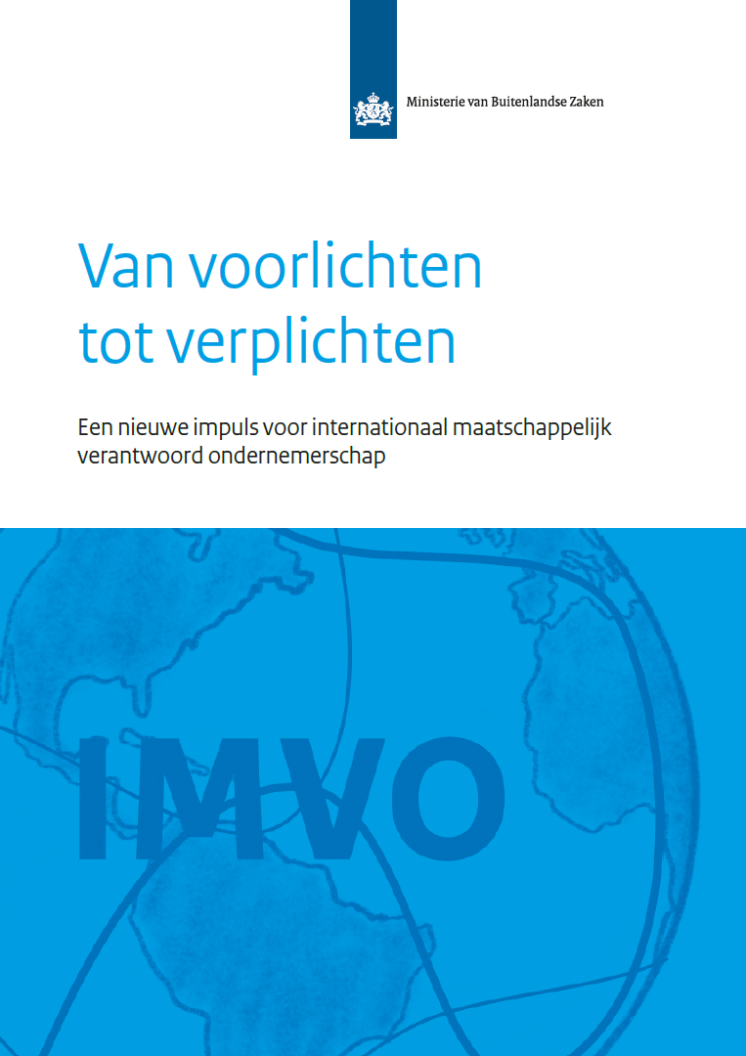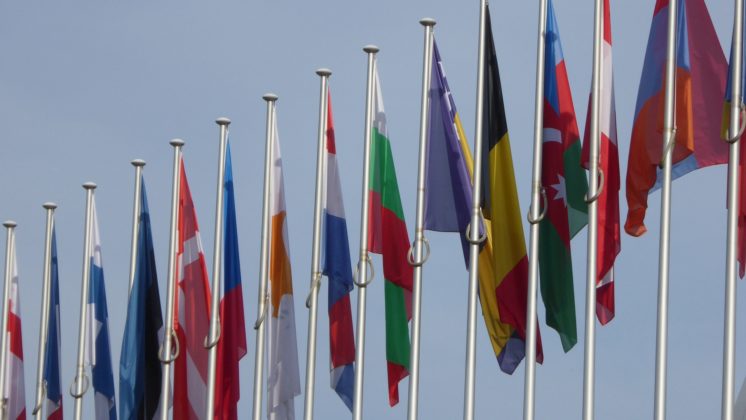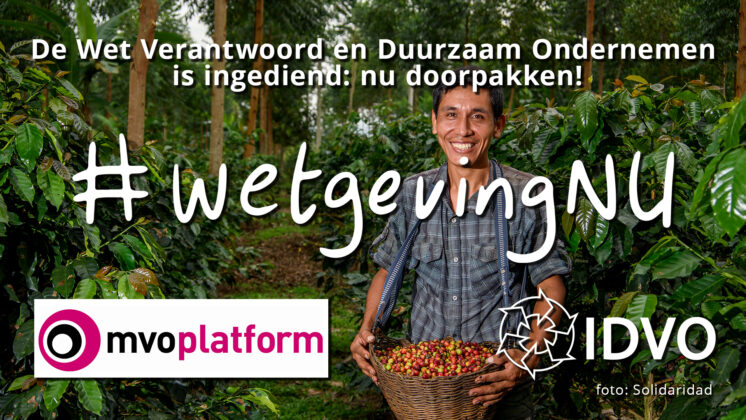The MVO Platform is pleased that the Dutch government has expressed support for the introduction of comprehensive legislation for responsible and sustainable business conduct (RBC). It is extremely positive that the government views this legislation ‘as a core element of new policy’, as outlined in a policy document. However, the MVO Platform urges the government not to simply wait in anticipation of future RBC policy from the European Commission, but in the meantime to get to work on its own legislation for the Netherlands.

For years, the MVO Platform has been advocating mandatory due diligence in the Netherlands. Support for this is extensive: employers’ organisations and trade unions have spoken out in favour of introducing RBC legislation via the SER (Dutch Social and Economic Council) advisory report. In addition, the MVO Nederland network, which consists of more than 2,000 businesses, as well as a group of 50 businesses in the Netherlands previously appealed to Minister for Foreign Trade and Development Cooperation Sigrid Kaag to pursue RBC legislation.
In October, the Initiative for Sustainable and Responsible Business Conduct (IDVO) was launched, in which a coalition now including 64 companies, over 30 civil society organisations and trade unions, various professors and religious institutions call for the adoption of binding rules for sustainable and responsible business conduct in the Netherlands.
Waiting for Europe
However, the Dutch government is unnecessarily postponing the introduction of legislation. In spite of broad support and momentum for national legislation, the government has chosen to wait for the European Union – even though it is still unclear whether agreement exists among the 27 EU member states on any European legislation, what the substance of this legislation should be and whether this would fulfil the Netherlands’ ambitions. Furthermore, the path to passing European legislation is generally extremely long. The Dutch government is allowing precious time to be wasted in tackling urgent human rights and environment abuses in production chains. In reality, the minister is shifting responsibility to Europe and to the next Dutch government.
Leadership and ambition
If the Netherlands is to exhibit leadership and ambition in Europe, Minister Kaag must take real action on responsible and sustainable business conduct. This is indeed possible since preliminary work has already been done by the Ministry of Foreign Affairs’ evaluation project. Furthermore, the Child Labour Due Diligence Law was already adopted in May 2019 and four political parties have submitted an initiative memorandum proposing mandatory due diligence: ‘Combatting modern slavery and exploitation’.
Moreover, the Netherlands would have to transpose any EU Guidelines for RBC into Dutch law in any case, and so the Dutch government could already get a headstart by passing RBC legislation based on internationally recognised OECD Guidelines. Germany and Finland have indeed chosen to develop national legislation as a stepping stone to European regulations; in France RBC legislation has been in effect since 2017.
The MVO Platform urges the Dutch government to stop delaying action and to take decisive steps toward binding regulations on sustainable and responsible business conduct in the Netherlands. This is the way for the Netherlands to take decisive action to address abuses in production chains worldwide, as a stepping stone to ambitious rules in Europe.
On 8 December the Dutch Lower House will discuss the new government policy document and the initiative memorandum with Minister Kaag.



